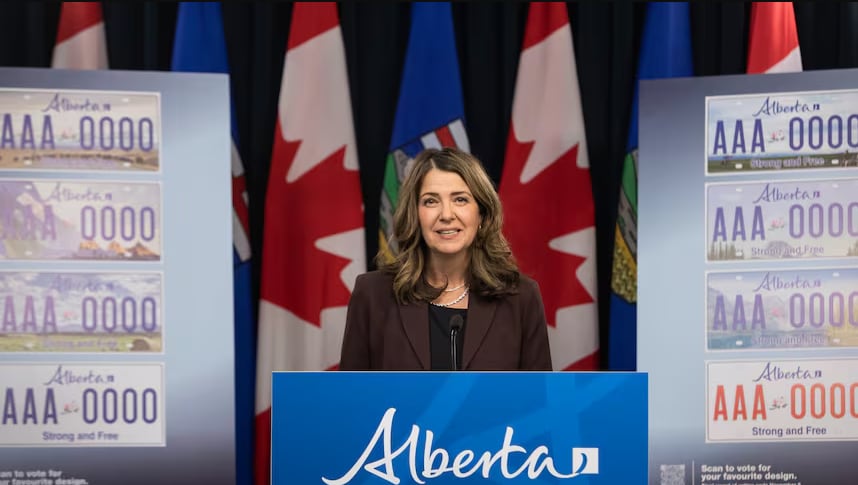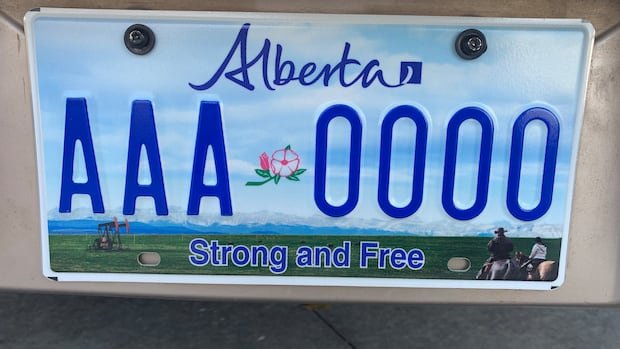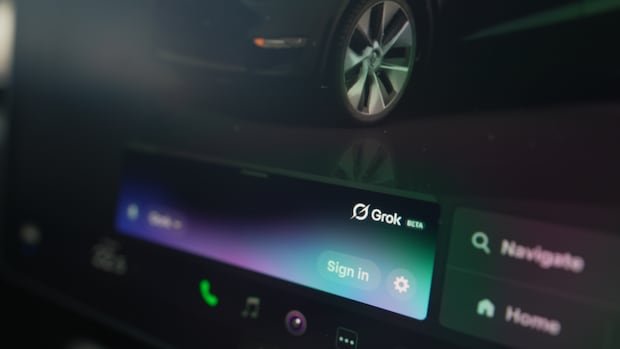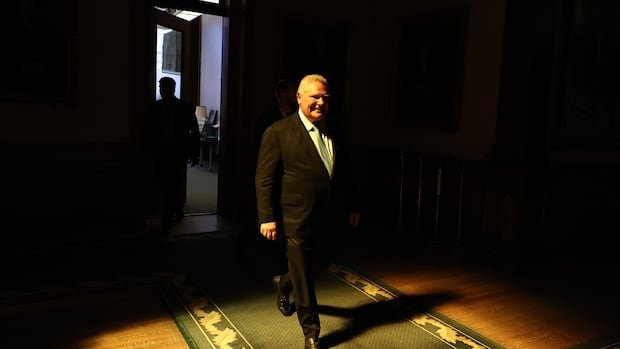part of Oh Canada could become a legal headache for the Alberta government as a New Brunswick company looks to defend its brand.
Earlier this month, Alberta Premier Danielle Smith unveiled six potential license plate designs for residents to vote on as the province transitions to a new license plate.
While the options featured different designs, from jeans to oil rigs, they all featured the province’s official motto “Strong and Free.”
The problem is that a local company in New Brunswick already owns the “Strong & Free” trademark.
Denise Dow, founder of Strong & Free Emblem, Inc. in Saint John, spoke patriotically about how she founded her business.
“I tell people that ‘Strong and Free’ chose me because it was something that came to mind as the one line in our anthem that speaks strongly about our identity and our support for human rights and freedoms for all humanity.”
Dow said it runs it as a licensing royalty model, working with manufacturers across Canada who can buy use of its “Strong & Free” emblem for products they can then make and sell themselves.
The trademark, which was approved by the government in 2022, specifically names more than 200 items that Dow’s design could be manufactured on, but cannot be done without its permission. It lists everything from clothing, hats, flashlights, towels, hockey pucks, belt buckles and metal plates.
The trademark-protected logo features three red maple leaves above a sign that reads “Strong & Free.”
In provinces like New Brunswick, which only require rear license plates on cars, many people use a decorative, novelty one on the front, he said.
Not long after Alberta announced its new license plates, Dow said, he started receiving messages from customers, so he consulted his trademark lawyer.
“Obviously we don’t want to stop anyone from promoting Canadian pride because that’s what I enjoy doing,” Dow said. “And we want people to celebrate Canada.”
The ideal scenario, he said, would be to “negotiate an agreement” with Alberta for the province to use the brand for a “nominal royalty,” some of which Dow said he would donate to a charity in Alberta.

CBC News reached out to both Premier Smith’s press secretary and Service Alberta, the department that oversees motor vehicle registrations, but did not receive a response from either.
At a news conference unveiling the plates on Oct. 15, Smith said the motto is a translation of Alberta’s Latin motto, Fortis and Liber.
“The inclusion of the motto on the license plate will also serve as a nod to Canada’s national anthem and Alberta’s position as a strong, sovereign province within a united Canada,” Smith said.
Norman Siebrasse, a professor at the University of New Brunswick who specializes in patent law, said this dispute could be a complicated case.
Albertans to decide province’s new license plate design in tournament-style vote
He said companies will register a trademark for specific products. The more different two specific products are, the less likely they are to be confused with each other, which he highlighted as a key aspect of Canadian trademark law.
In this case, a court would have to analyze whether there is confusion between the souvenir plates manufactured by the New Brunswick company and the actual plates issued by the proposed Alberta government.

Siebrasse said a trademark must be distinctive and clearly identify a brand.
“So that would be another point of attack that the Alberta government would say,” Siebrasse said, adding that the fact that the company’s trademarked motto is also in Alberta’s national anthem and motto “is due to a lack of distinctiveness.”
“So you have to have developed a reputation,” he said.
“It’s not enough to just use the brand and have sold a few. You have to have developed to the point where everyone looks at a badge that says strong.” and free and say, ‘Oh yeah, you did that.'”
“The fact that it’s a very, very common slogan will give the Alberta government the opportunity to … argue that it’s not distinctive.”
Siebrasse said most trademark court cases will be resolved earring about how expensive it is to go to court, but added that it is common for cases to start but then be resolved.
Dow said it’s not unusual for him to have to defend his brand, noting that his business has been operating since 2007.
“You have to be prepared for some infractions,” he said.
“But I would say most of the time it’s because someone didn’t realize it was a trademark and what constitutes the trademark agreement.”
Dow said thathe runs his business alone and can’tYou often talk about “legal battles,” but you can usually reach a settlement with anyone who has infringed your trademark.
“I’ve invested my life savings to build this brand, to pay for the brands, to defend them,” Dow said.
“And I’ve done this so I can pass on a financial legacy to my family, as my son is autistic and my daughter potentially has to help him.”








